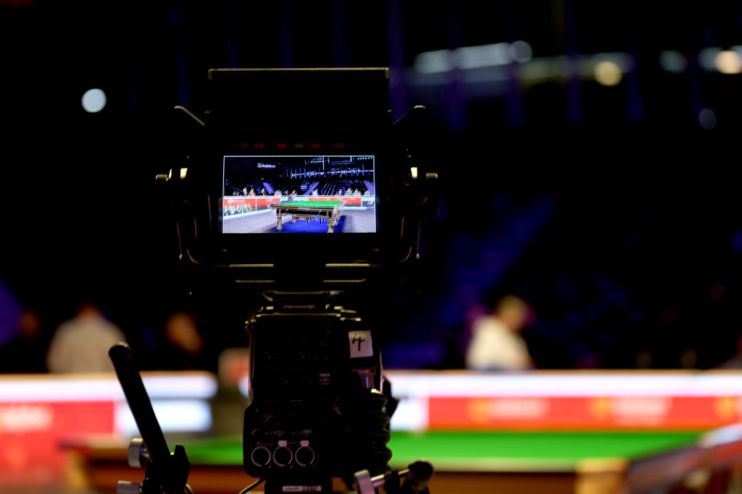Time to champion Europe’s broadcasters for the next generation

Over the past decade, television, and the way we watch it, has changed beyond recognition.
The explosion of global digital services like Netflix, YouTube and Amazon Prime and social distribution on platforms like Facebook, Twitter and Snapchat mean we’ve never had more choice about what to watch and how to watch it. On our smart phones, tablets or laptops, we can watch films, sports, news and entertainment whenever we want, wherever we are.
Paradoxically, this proliferation of choice means the need for high-quality public service broadcasting has never been greater.
The onslaught of fake news and disinformation has undermined people’s trust in democracy, while fragmenting viewership means that the shared cultural experiences that underpin social cohesion are in decline.
Some of these challenges might sound new but we have faced them before.
The European Broadcasting Union was born 70 years ago this month out of the rubble of the Second World War to bring public broadcasters together to share creative ideas, encourage technical co-operation and play a role in shaping a new vision for the continent based on independent, impartial reporting.
Today, that commitment is more important than ever.
Public service broadcasting is often where people turn first for trusted, accurate and impartial news about the world around them, at home and abroad. According to the Reuters Institute, the BBC was by far the most widely used news source during the recent General Election, used by nearly half (44%) of Britons to get campaign information.
It’s where parents feel comfortable leaving their children, safe in the knowledge that they won’t be exposed to harmful content.
It improves our understanding of Europe’s diverse cultural landscape, helps us make sense of a world of proliferating threats and encourages debate where all voices can be heard.
And in an increasingly atomised world, where loneliness is reaching epidemic proportions, public service programming creates viewing moments that bring nations together and provoke national conversations, such as Blue Planet, World Cup Final football matches and the Eurovision Song Contest – a unique, collaborative and joyful event that only public services broadcasters could have created.
Our Members, representing 116 organizations in 56 countries in Europe, North Africa and the Middle East, will this year invest almost 20 billion Euros on making distinctive content which reflects the nations they serve.
Together, they reach audiences of more than one billion people around the world, broadcasting in more than 160 languages.
Without that investment we wouldn’t have independent news channels across the continent, reporting freely and accurately on the issues that matter.
We wouldn’t have almost 100 children’s television channels helping young people to learn and grow. Drama that moves you. Art that releases you from the day-to-day.
Programmes that deliver a public service rather than just chase ratings.
Take the case of Iceland’s RUV investigative news series Kveikur. Its recent expose of an Icelandic fishing company at the centre of Namibia’s biggest corruption scandal was watched by over half of the population.
Or, in Norway, school children are given lessons in kindness via Blime, the anti-bullying campaign launched by the broadcaster NRK.
And thanks to KRO-NCRV, the Dutch public broadcaster, the Netherlands now has, for the first time in its history, a Minister of Disability Issues campaigning to improve the lives of the 1.8 million Dutch people with a disability. Rick Brink was appointed during the broadcast of the television programme De minister van Gehandicaptenzaken (The Minister of Disability Issues) on NPO1 last year.
This is just the tip of the iceberg. Across Europe, millions of lives have been changed because of exposure to high-quality, distinctive content delivered by public service broadcasters.
So many of these programmes and services wouldn’t exist if left to the market alone.
But we face a severe threat.
As the algorithms of Silicon Valley powerhouses become ever-more dominant curators of what European audiences consume – especially for younger viewers – we are finding it increasingly difficult to make our content visible to our audiences.
A decade ago, it was simply a question of turning on the radio or switching on the TV to listen to the news. Today, we can watch it live or on-demand, streamed on our phones or via a catch-up service.
This fragmentation of viewing across different platforms creates challenges for ensuring that public service content can be easily found.
Public service broadcasters are investing heavily to ensure that people can see their content when they switch on their screens and are developing digital alternatives to US corporations.
But US platforms are increasingly becoming powerful gatekeepers to what we watch, promoting their own programmes and those of their commercial partners.
That is why, on the 70th anniversary of the European Broadcasting Union, we are appealing for change.
Work is needed to ensure a fair and transparent online platform environment and to guarantee that platforms’ responsibilities are brought in line with their ability to influence opinions.
We need policies that guarantee the prominence of public service content on all major platforms to ensure that people can easily find and access high-quality, reliable information and programming.
To remain relevant, our Members also need access to the data that digital platform generate from using our content. Without knowing how, when and for how long, people are watching our programmes, we will struggle to innovate and enhance what we offer our diverse audiences.
Most importantly, we need a long-term commitment from decision-makers across Europe to ensure that, while embracing the opportunities of the digital age, we protect the values we hold most dear – media freedom, diversity and a commitment to quality.
We must work to ensure that these values continue to live on for the next 70 years.
Noel Curran is director general of the European Broadcasting Union